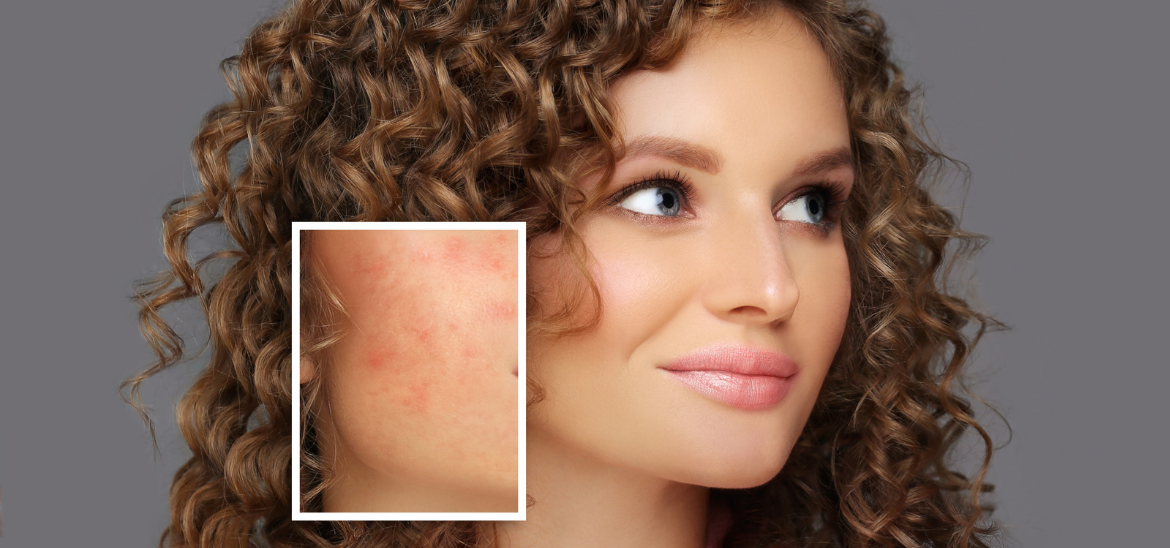What is Acne/Pimples?
Acne is a condition affecting the skin’s hair follicles and oil glands. Under your skin, your pores are connected to glands that make an oily substance known as sebum. The glands and pores are connected by a canal known as a follicle that has a thin hair that grows out to the skin’s surface. When sebum and dead skin cells clump together, they form a plug in the follicle. Bacteria in the plug causes inflammation, leading to red pimples.
Causes
While the exact causes of acne haven’t been identified, it’s been determined that certain things can trigger acne or make it worse, such as:
- Hormonal changes, such as puberty, pregnancy, and the menstrual cycle
- Squeezing or picking at existing pimples
- Pressure, such as from collars, hats, helmets, and backpack straps
- High humidity
- Cosmetics, such oil-based skin products and hair products
- Medications, such as steroids
- Stress
Symptoms
Different symptoms can indicate different types of acne and include:
blackheads: plugged pores on the skin’s surface, open
whiteheads: plugged pores, under the skin’s surface, closed
pustules: pus filled lesions
nodules: large, painful lumps deep under the skin’s surface
cysts: painful, pus-filled lumps with well formed sac under the skin’s surface
Treatment
Acne treatment basically needs skin exfoliation and oil secretion control.
Oral or topical antibiotics can be prescribed in case of painful pimples.
Topical skin exfoliating creams and facewashes are required.
Dr. Ashwini may also recommend therapy in combination with medication or on its own after thorough examination of patient.
Therapies for acne include:
Chemical peel
Microdermabrasion
How to prevent Acne?
Wash your face with warm water and a mild facial cleanser.
Use noncomedogenic hair products, sunscreen, and makeup.
Avoid squeezing or picking at blemishes.
Avoid touching your face with your hands, your phone, and your hair.
Maintain a healthy diet, and avoid high sugar intake.

